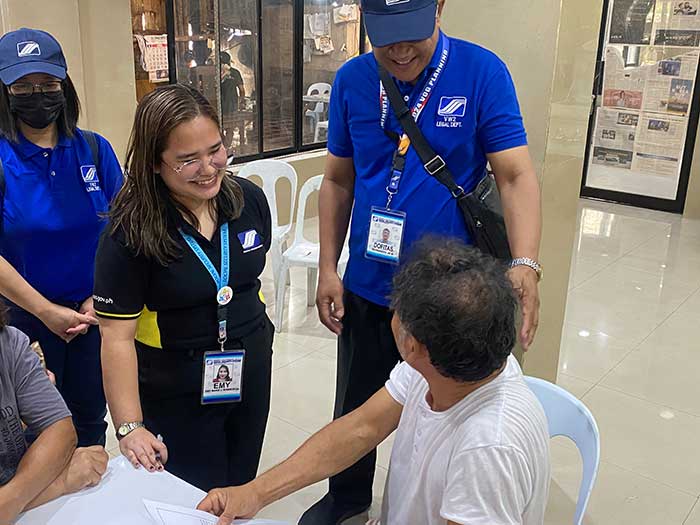
By Joseph Bernard A. Marzan
The Social Security System (SSS) is once again reminding employers in Iloilo to remit their employees’ contributions promptly.
The call to action comes as the SSS intensifies efforts to address delinquent payments.
SSS conducted another round of its regular Run After Contribution Evaders (RACE) activity on Thursday, April 18, physically visiting 12 employers in Iloilo City and in neighboring San Miguel town.
This is the fourth RACE activity of SSS Iloilo–Molo and SSS Iloilo–Central, which is temporarily located in Pavia town.
SSS Teams served notices of violation to employers with total delinquencies amounting to P1.91 million, including P1.4 million in principal and P507,976.41 in penalties.
According to Section 22(a) of Republic Act No. 11199 (Social Security Act of 2018), penalties attached constitute 2 percent of the unpaid contributions per month, reckoned from the due dates of the contributions.
The delinquency of each employer, which includes both their principal delinquency and their corresponding penalties, ranged between P24,725.70 to P440,730.61.
These employers were advised to appear before the SSS’ offices within 15 days, and were also offered to have their delinquencies and penalties condoned through their Contribution Penalty Condonation, Delinquency Management and Restructuring Program (CPCoDe MRP).
Under the CPCoDE MRP, delinquent business employers would pay their unremitted contributions with a 6 percent legal interest per annum (per year) during the period where the employer has shown proof that the business suffered a net loss, and at the same time, condone the penalties incurred during the delinquency period.
SSS Vice President for Western Visayas Area 2 Bernardo Dofitas told Daily Guardian that the employers visited had the greatest amount of delinquencies at the time that they were monitored and evaluated.
Account officers of the SSS branch offices personally deliver billing statements to the employers to inform them of their missed remittances prior to the RACE Team’s visits.
Businesses that do not comply with the instructions in the billing statements will be considered for RACE Team visits. The ‘Top 6’ based on the amount of delinquencies will be visited first.
If the employers believe that they have already paid through a third-party person, the SSS office may assist them in reconciling their receipts with official records.
Dofitas described the RACE as an “extralegal strategy” to call in delinquent business employers so that they can avoid litigation.
“We deliver our notices of violations, but our purpose there is also to reach out on the part of the SSS, to show that we are not ignorant of our duties to our employer-registered members, and at the same time, to reach out that the SSS is not just some sort of office that members have to go, but it is an office that goes out of its way,” Dofitas said.
Even with the SSS’ move to make their services available online, he said that they feel more welcomed when they approach people on the ground, citing employers’ and employees’ willingness to learn.
“It makes a difference if you go to them personally. It’s a big thing that you can help them even with a few minutes of conversation where we learn that they actually have problems with [their] SSS [accounts],” he shared.
Contribution payments to the SSS allows them to provide benefits to qualified employees, including sickness benefit, disability benefit, maternity benefit, funeral benefit, retirement benefits, and employees’ compensation for work-related injuries or disabilities, as well as salary loans.
“All of these benefits will not be availed of by an SSS member if their contributions are not remitted by their employers. That is why the Social Security mandates of the SSS will not find its application if we do not have an enforcement arm on the employers,” he explained.
Section 28(h) of Rep. Act No. 11199 provides that employers who fail to remit the contributions or loan amortizations deducted from employees’ salaries shall be presumed to have misappropriated them, and will be penalized in accordance with Article 315 (Estafa) of the Revised Penal Code.
















